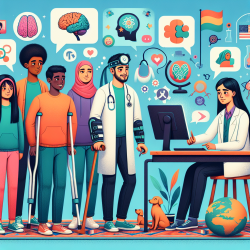In today's digital age, the concept of open notes—allowing patients to access their clinical records online—has emerged as a revolutionary practice in healthcare. Despite its potential to enhance patient engagement and improve care outcomes, many clinicians remain skeptical about its implementation. This skepticism often stems from concerns about patient confusion or anxiety upon reading their medical records. However, research suggests that these fears may be unfounded and that open notes can offer significant benefits to both patients and healthcare providers.
Understanding Epistemic Injustice in Healthcare
The reluctance to fully embrace open notes can be viewed through the lens of epistemic injustice—a term coined by philosopher Miranda Fricker. Epistemic injustice occurs when individuals are wronged in their capacity as knowers or contributors to knowledge. In the context of healthcare, this manifests as testimonial injustice (where patients' credibility is unfairly diminished) and hermeneutic injustice (where patients lack access to resources that could help them interpret their experiences).
The research article "Patients, clinicians and open notes: information blocking as a case of epistemic injustice" highlights how these forms of injustice play out in the resistance to open notes. Clinicians may stereotype patients as unable to handle their medical information, leading to unnecessary barriers in accessing their records. This not only undermines patients' autonomy but also limits opportunities for them to engage actively in their healthcare.
The Benefits of Open Notes
Contrary to some clinicians' concerns, studies have shown that patients derive multiple benefits from accessing their clinical notes:
- Enhanced Understanding: Patients who read their notes report a better understanding of their health conditions and treatment plans.
- Error Detection: Access to notes allows patients to identify and correct errors in their medical records, improving accuracy and safety.
- Increased Engagement: Patients feel more in control of their healthcare decisions when they have full access to their clinical information.
- Improved Communication: Open notes foster better communication between patients and clinicians, leading to stronger therapeutic relationships.
Tackling the Challenges
The implementation of open notes is not without challenges. Clinicians worry about increased workload and potential misunderstandings. However, evidence suggests that these concerns are often overestimated. For instance, studies have found no significant increase in patient contact after implementing open notes. Moreover, when patients are encouraged to read and discuss their notes, it can lead to more efficient consultations.
A Call to Action for Practitioners
If you're a healthcare practitioner looking to improve your practice, consider embracing open notes as a tool for enhancing patient care. Here are some steps you can take:
- Educate Yourself: Familiarize yourself with the research on open notes and its benefits. Attend webinars or conferences on the topic.
- Encourage Patient Participation: Actively encourage your patients to read their notes and provide feedback on any discrepancies they find.
- Cultivate an Open Mindset: Approach open notes with an open mindset and be willing to adapt your practices based on patient feedback.
- Pilot Programs: Consider implementing pilot programs within your practice or organization to assess the impact of open notes on patient satisfaction and outcomes.
The potential for open notes to transform healthcare is immense. By addressing epistemic injustices and fostering transparency, we can create a more equitable and effective healthcare system for all.
Patients, clinicians and open notes: information blocking as a case of epistemic injustice










